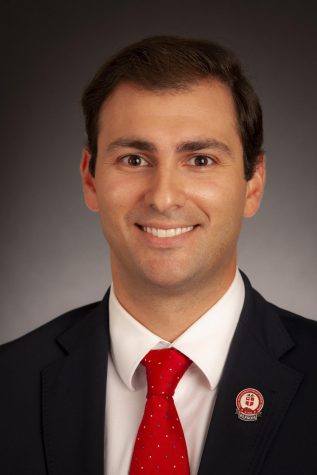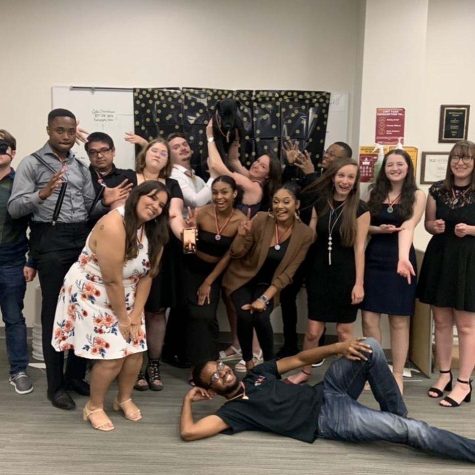Food for thought: students question on-campus dining’s historic anti-LGBTQ rhetoric
It has been four years since the school installed a Chick-fil-A here on campus, and while some students may be excited to have the food chain, other students have found themselves detesting it.
Over the past seven years, Chick-fil-A owners have been open about their views – specifically those relating to same-sex marriage and the LGBTQ community. The owners believe that marriage should only be between a man and a woman and have used their profits to donate to multiple organizations who advocate anti-gay beliefs, including anti-gay conversion therapy.
Although MSU is a small campus, the diversity is evident in the many clubs and organizations the school has, including People Respecting Identity Diversity for Everyone (PRIDE). There are many students and faculty on campus who are a part of the LGBQT community, so to have a food chain on campus that is widely-known for its anti-gay affiliations may make these people feel isolated or uncomfortable.
However, there are some students in the LGBTQ community who, while aware of Chick-fil-A’s anti-gay affiliations, continue to eat there for their own reasons.
“I do eat at the Chick-fil-A on campus and I don’t really feel conflicted because I kind of pay for it. I have a meal plan and there’s only so many places to eat on campus,” Te’Neshia Gold, exercise physiology junior, said. “The Chick-fil-A on campus is extremely different than Chick-fil-A’s off campus. This is more student-friendly since students work here, so I think it’s pretty chill.”
Other students in the LGBTQ community, like Jordan Logan, acting and directing junior, refuse to eat at Chick-fil-A, even if it is one of the few dining options students have on campus.
“Students may feel critical because of the controversies that surround and have surrounded Chick-fil-A for years. They are known to be a religious establishment that uses profit to support anti-gay organizations. Not just a conservative religious company- a company filled with hate and disgust for people who love the same sex,” said Logan.
Logan isn’t alone in her negative attitude toward Chick-fil-A. This could create a problem for the school if a majority of students ever decided to quit dining there. However, the fact is, Chick-fil-A does really well with the majority of students, and it doesn’t look like it will be losing very many customers any time soon. The lines at Chick-fil-A continue to be long every day during lunch hours. In fact, Chick-fil-A creates the longest line of student customers than any other dining area on campus.
“Chick-fil-A is good and that’s why everyone eats there. Because it’s the only good thing on campus really. It’s also basically the only place that doesn’t have problems. Other choices on campus are gross, not fully cooked, overcooked, rotten, or mislabeled,” said Logan.
Ultimately, most people are going to continue to eat Chick-fil-A, even if they are a part of the LGBTQ community. Reasons for this are because students only have one meal exchange a day with the option of four of these dining areas; Grill Nation, Burrito Bowl, Chick-fil-A, and Einstein Bros Bagels. This means that if they use their school ID to get food at any of these four places, they cannot get food from any of those places again until the next day. Still, students can eat at the Mesquite cafeteria and Maverick’s Corner as much as they want throughout the day. However, students tend to favor fast food places, especially Chick-fil-A, over the cafeterias, which are known to have a lot of flaws regarding the food and the service.
Kristi Schulte, director of residence life and dining liaison, said, “I think that it’s important that if students have concerns that we utilize appropriate student voices. I would encourage the students to reach out to SGA [Student Government Association] if they have concerns. Based on the popularity of Chick-fil-A on campus, one of the things we that would want to do is to make sure that there was a student voice behind any changes to that option being provided to students.”
Even if students did band together and request that Chick-fil-A be removed from campus, the task might not be possible with the “Save Chick-fil-A” bill that was passed in July of this year. This bill protects Chick-fil-A by prohibiting the government from taking adverse action against businesses or individuals because of their religious beliefs or moral convictions.
“More choices are needed on campus- period. Not more food choices in the cafeteria, not another chef that’s going to fall into the same habits- this campus needs more restaurants or fast food options,” said Logan. “Chick-fil-A should not be offered because of its religious and political ties, and other choices need to be added.”
This solution is one that many other students agree on. Gold said that if they can’t remove or replace the Chick-fil-A on campus, the school should at least add more variety of places for students to eat on campus.
“I think another restaurant or two should open up in case you do have students that feel conflicted eating there. It’ll just create a more comfortable environment for everyone.”
List of controversial groups Chick-fil-A has donated to:
- Fellowship of Christian Athletes – requires employees to refrain from “homosexual acts.”
- Salvation Army – historically anti-LGBTQ; media relations director once stated that gay people “deserved death.”
- Paul Anderson Youth Home – teaches kids that homosexuality and same-sex marriage is against Jesus Christ.
- Marriage & Family Foundation – anti-gay beliefs.
- Georgia Family Council – anti-gay beliefs.
- Exodus International – promotes conversion therapy.











